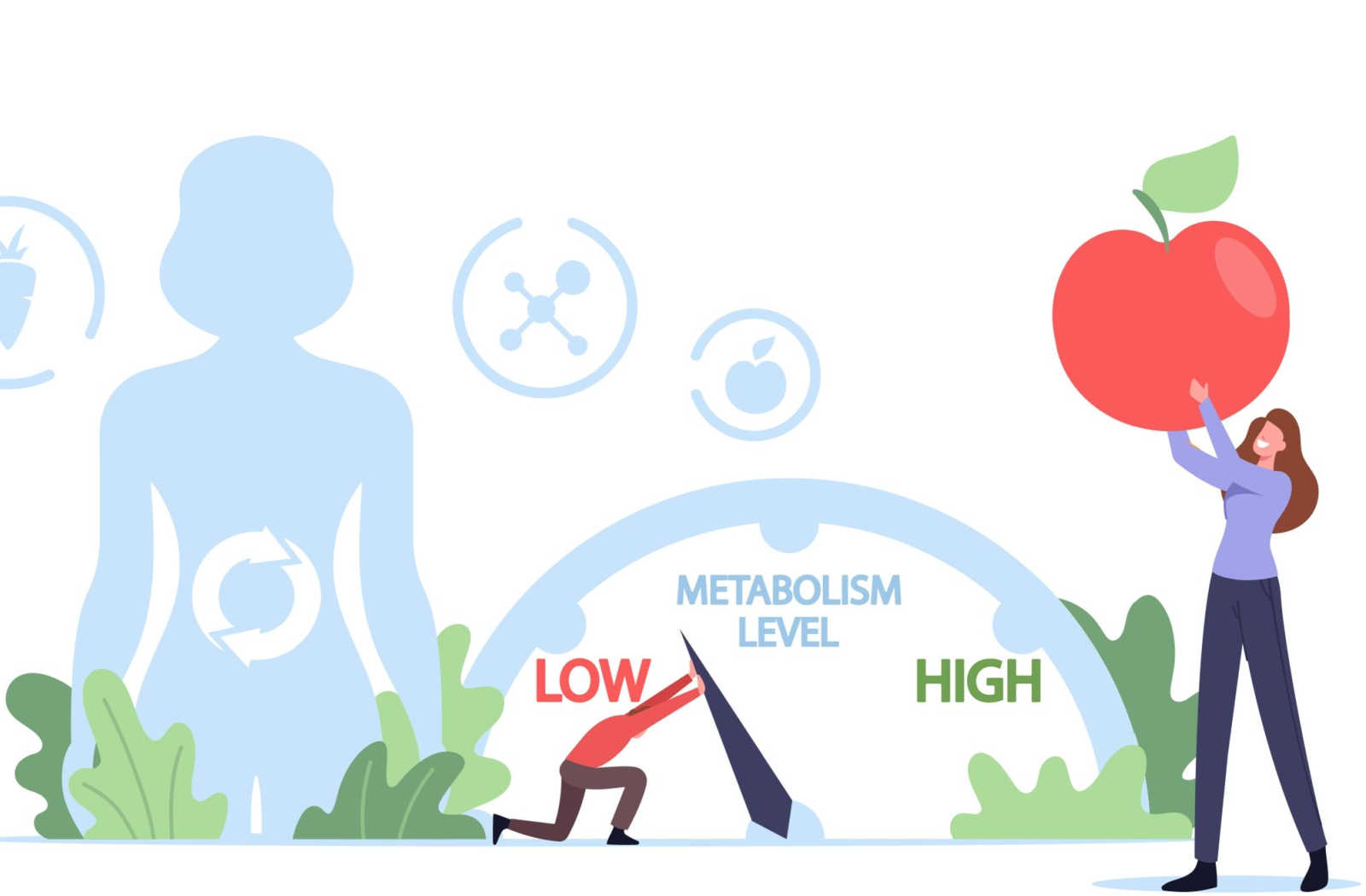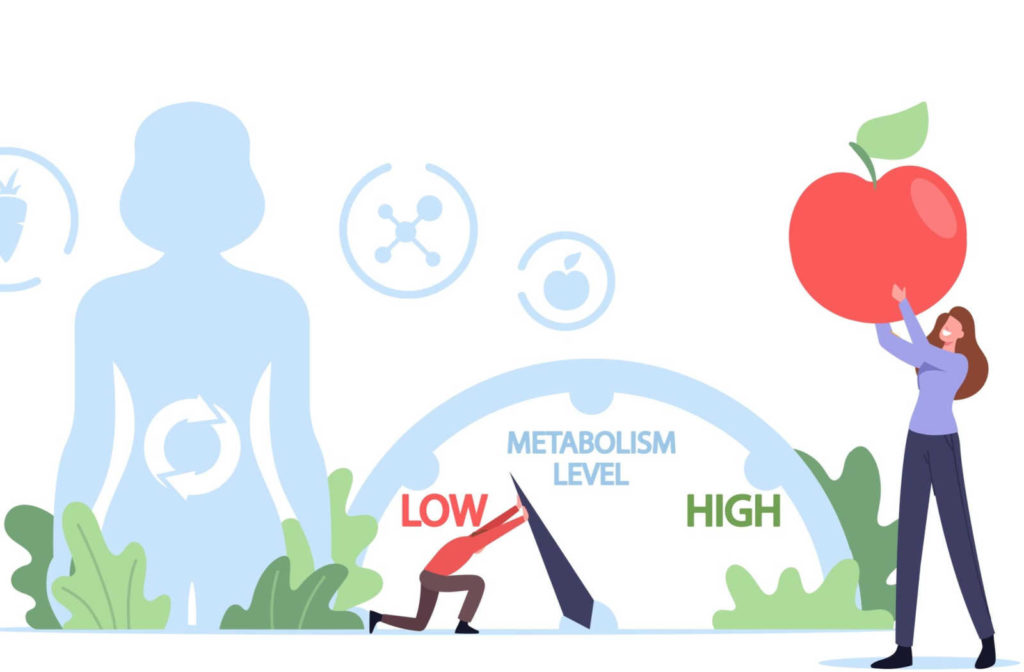Retirement should be a time of relaxing and enjoying your favorite hobbies. But it’s important to find a good balance of slowing down while staying active because if you slow down too much, your health may suffer.
For example, our metabolism generally begins slowing down around 30 and continues slowing down progressively. But if you take action—improve your eating habits, sleep, and get enough exercise—you can help improve your body’s metabolic function.
If you’re planning on joining an independent living senior community, many of them have support systems in place. The communities typically have teams of staff who can help whenever you need it while allowing you to maintain your independence.
What Does Metabolism Do?
Our body’s metabolism is responsible for turning the nutrients we put into it into fuel to power the body. When it comes to gaining or losing weight, your metabolism plays a large role. For example, if it’s slowing down, it will burn calories slower. This makes a person prone to gaining weight easier and having trouble maintaining a healthy weight.
In addition to helping regulate weight, your metabolism is part of the body’s process for breaking down what you eat and ensuring the nutrients get where they need to.
Possible Reasons for a Slowing Metabolism
There is no single reason a person’s metabolism slows down. A few common possible reasons include:
Age
A slowing metabolism is a natural part of aging. There are certainly things a senior can do to offset some of the slowdown, which we’ll look at below. A person typically notices signs that their metabolism is slowing by age 30.
At first, you may notice that losing weight is harder. Eventually, some muscle loss is expected, even with adequate physical activity.
Health Conditions
Several underlying health conditions can throw your body’s systems and processes out of whack. For example, a thyroid disorder like Hashimoto’s disease can cause metabolism problems. Low estrogen or testosterone could also be the culprit. If your doctor can treat the underlying condition, they may be able to help regulate your metabolism.
Diet & Exercise
There’s no denying that a healthy, balanced diet and adequate physical activity are important for a person’s overall good health. The CDC has helpful minimum recommendations that cover weekly physical activities regarding strength, balance, and cardio.
Researchers performed a study several years ago on how physical activity affected metabolism. They found that even a single workout session can boost the metabolism for up to 2 days. This, coupled with a healthy diet, puts most people on track to a healthy metabolism.
One important thing to note about diet and exercise as a senior is that care must be taken. An aging body won’t heal like it used to. In most cases, a conversation with your doctor before starting any new exercises or diet can help you choose safe and effective activities.
Ways to Speed Up Your Metabolism
There isn’t a single cause for your metabolism to slow down, and there isn’t just one way to help speed it up. The following are a few general tips on speeding up your metabolism. Your doctor can help you determine which can offer you the best results.
Stay Active
You don’t have to be a star weightlifter to stay active in your golden years. The CDC recommends 150 minutes of moderate-intensity or 75 minutes of vigorous-intensity exercise weekly. They also recommend working on muscle strength and balance throughout the week.
Getting outside for a jog, taking your dog for a walk, water aerobics, or chair yoga are all ways that just about any senior can stay active.
Get Quality Sleep
A good bedtime routine is essential for high-quality sleep. Avoiding too much alcohol or nicotine is also important for good sleep. If you drink coffee, you’ll want to avoid it too close to bed—your sensitivity to caffeine will help determine how long before sleep you should abstain.

Have a Cup of Coffee
Speaking of coffee, a 240-milliliter cup of coffee may have weight loss and metabolism-boosting characteristics. Keep in mind that sugar and cream will not help slow metabolism, so black coffee is the best choice if you’re looking to reap the metabolic benefits.
Eat Smaller & More Frequent Meals
Many people subscribe to “normal” meal times: breakfast, lunch, and dinner. There is some debate in the research community about the benefit of numerous smaller meals versus 3 large ones.
While eating lots of small meals may not conclusively slow your metabolism, including healthy snacking in between your main meals may help control your weight.. Maintaining a healthy weight is connected to how your metabolism is functioning.
Finding Support in Your Retirement
Making healthy choices and living an active lifestyle is not always easy. As we age, it can become even more difficult. Finding a community that supports clean and healthy living is important, and can make it easier and more fun to incorporate physical activity into your routine.
If you or a loved one are considering retiring in Winona, give us a call. Our compassionate team at Bluff View Estates can answer your questions and book a community tour for you.



